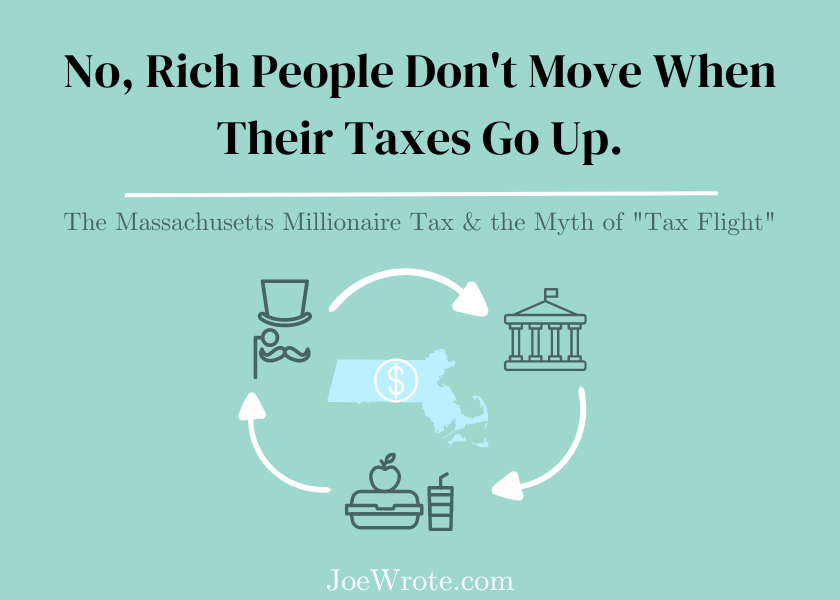No, Rich People Don't Move When Their Taxes Go Up.
The Massachusetts Millionaire Tax & the Myth of "Tax Flight"
Welcome to JoeWrote. You can support my work by liking this article (click the ❤️ button at the top) or forwarding it to a friend. This article is for premium readers. If you’d like to read it (and everything else JoeWrote has to offer), you can become a full reader for just $15 a year.
Thank you for your support. In Solidarity, Joe
Last November, Massachusetts voters amended the state constitution to add a 4% income tax to any income over one million dollars. At the time, opponents of the “millionaire tax” put forth the standard arguments levied against such taxes. They claimed the increased rate would drive away investors, lose jobs, and cause wealthier individuals to move out of the Bay State. This threat, which is the go-to defense against income and wealth taxes around the world, is known as “tax flight” — the idea that raising taxes on rich people will cause them to relocate, eliminating any potential gains the higher rate would bring in.
But, as shown by the lack of exodus from Massachusetts and some compelling data disproving this notion, it appears that tax flight is nothing but a myth.
The State of Tax-achusetts
Last week, Massachusetts Governor Maura Healey signed the state’s 2024 fiscal budget into law. The budget estimates about $1 billion dollars will be brought in from the new millionaire tax, indicating state planners are not seeing the exodus of investors and wealthy Massachusettiasns that opponents to the tax claimed would occur. Not only has the millionaire tax not brought financial devastation to the Bay State, but the added $1 billion in revenue is being put to good use. Starting this school year, it will be used to ensure every child that attends a Massachusetts public school will receive a free lunch. This may sound trivial, but free school meals are actually key to combatting food insecurity. According to the Food Research & Action Center, free school lunches not only reduce the prevalence of food insecurity among students but for the rest of their households. Leftover revenue will be used in other education and public goods initiatives, such as upkeeping infrastructure, funding public transportation, and expanding public childcare and college financial aid programs.





